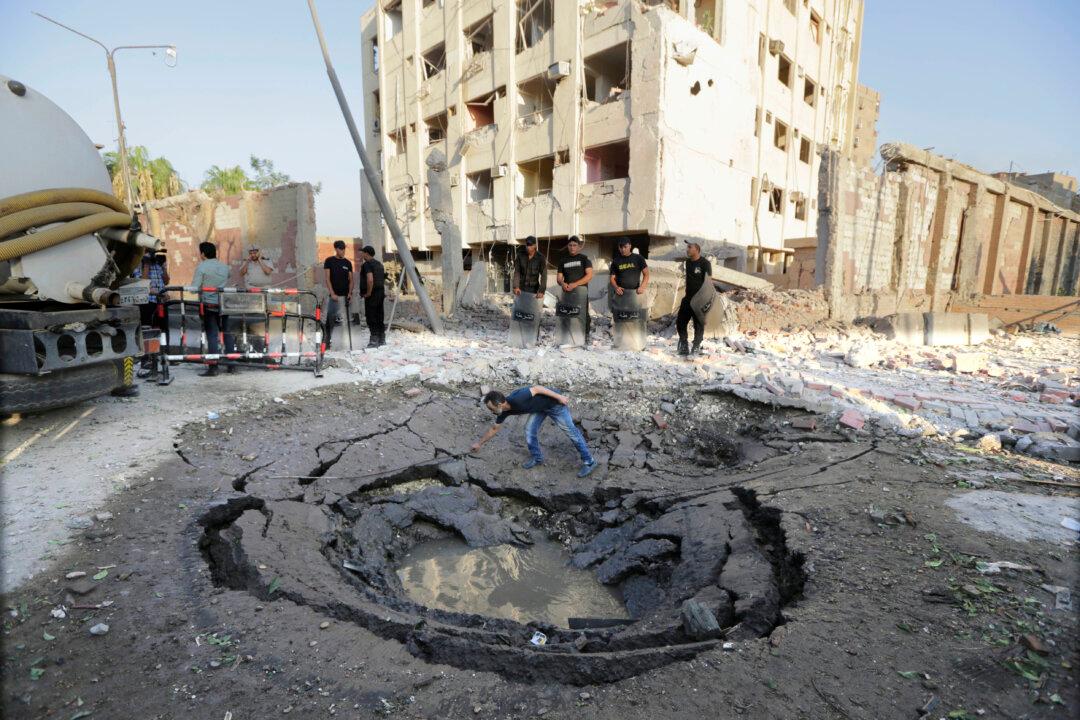The 529 death sentences handed down to supporters of the Muslim Brotherhood represent the largest number issued collectively in living memory in the country. That these sentences were delivered after a two-day trial, without benefit of defence testimony, has sparked international outrage - yet many in Egypt have greeted the move positively.
It signals the completion of a counter revolution, the wheels of which have been turning since mass protests, supported by the army, ousted the legitimate but unpopular Islamist president Mohammed Morsi last July.
Morsi had been in power for only 12 months but the unpopularity of his political decisions built a massive groundswell of opposition which spilled onto the streets, giving the military its opportunity to force events.
Army Takes Control
The past nine months have seen the military, headed by Field Marshall Abdel Fattah el-Sisi, consolidate its power. Now it appears al-Sisi will run for the presidency.
The announcement of the death penalties came just one day after police entered al-Azhar University in Cairo to disperse anti-government protesters. Students, academics and opposition journalists have been a sustained target for the counter-revolution since July 4.
The speed at which the trial proceeded – it was adjourned after one session on Saturday and the death sentences were announced on Monday – highlights the way military power is now operating hand-in-glove with a compliant judiciary within the Egyptian state. This is a stark demonstration of the “deep state”, that’s roots can be traced back to the time of Nasser.
The new Egyptian constitution approved in January 2014 is a prime example of this privileged – yet not unprecedented – relationship between military and judiciary. It grants considerable autonomy to the state institutions, particularly those concerned with security, which have aligned together against the Muslim Brotherhood.
The new constitution also outlaws the participation in politics of religious parties, something that existed at the time of Nasser.
Brotherhood Going Underground
At a stroke, the Muslim Brotherhood is once again an illegal organisation. Some 16,000 members have been arrested or killed. The Brotherhood, which experienced political authority for the first time in 2012, is now forced to once again seek answers to many of the questions it has previously engaged with over the legitimate use of violence.
While the Brotherhood’s spokesman in London declares that this sentence is just a further proof of Egypt’s descent into yet another dictatorship, there is the palpable danger of the Brotherhood resorting to violent means and re-organising itself in a quasi-militia movement to protect its members, as a consequence of repression and daily discrimination.
Meanwhile, the recent resignations of the cabinet and prime minister seemingly pave the way to al-Sisi’s run to presidency, which would mark Egypt’s return to a military autocracy. It is as yet unclear how the mass of Egypt’s populace will react to this. Will it result in yet another eruption of protest or will it instead be tacitly accepted in favour of some long-sought stability?
Either way, it will add to the list of grievances that fuel the rage of the Egyptian people, which is arguably not lost but just suppressed. Egypt’s quest for dignity is not dead but has rather been drowned in violence, meaning that even if the population seems today to be coming to terms with the way the freedoms they thought they had won in 2011 have been clawed back by the Deep State, discontent is likely to keep bubbling away under the surface until it eventually explodes again. Once again, such development would not be unprecedented but a demonstration of Egypt’s cyclic history.
What must be remembered is that what is happening in Egypt is not new but can be traced back to several previous periods in recent history. This cycle of Islamist engagement within politics followed by violent repression also occurred under Nasser, Sadat and Mubarak.
What is clear is that the Muslim Brotherhood faces the most severe challenge to its long-term stability since the time of Nasser. In the aftermath of being a democratically elected party, the Brotherhood faces serious external and internal pressures that it must overcome in order to continue as a prominent actor within Egyptian politics.
Lucia Ardovini receives funding from ESRC.
Simon Mabon does not work for, consult to, own shares in or receive funding from any company or organisation that would benefit from this article, and has no relevant affiliations.
This article was originally published on The Conversation. Read the original article.
